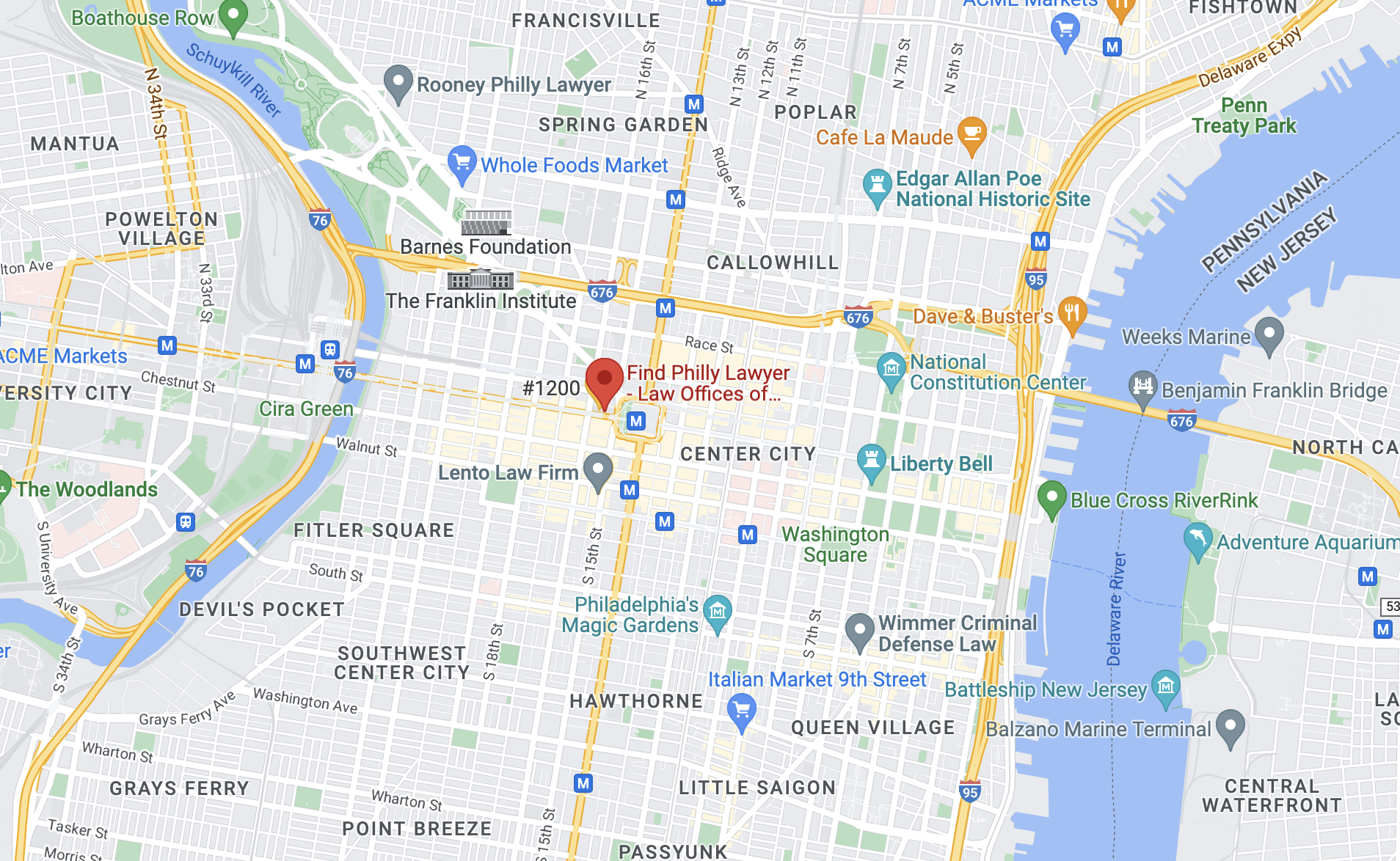Bench warrants are common tools that the courts use to get you to come into court after missing a court date or failing to follow through with another requirement. These warrants are not issued to arrest you for a new crime, but the possibility of jail time and arrest still makes bench warrants incredibly important to deal with.
After being arrested on a bench warrant, you will be taken to jail at first. If your bench warrant was issued because of a failure to appear, you will need to have a new bail determination hearing. Because of your previous failure to appear, this might mean you could have your bail revoked or raised, but jail is not necessarily required. If you do get bail revoked, you will likely stay there until your trial is finished.
Get a private case review for free by calling The Liberty Law Team at (215) 826-3314 and speaking to our Philadelphia criminal defense lawyers.
How Long Can Someone Go to Jail Because of a Bench Warrant in Pennsylvania
The time someone might spend in jail because of a bench warrant depends on the bench warrant and the reason behind it. A bench warrant is not issued for a new criminal offense; there must be some pre-existing case behind the warrant.
Since bench warrants are usually issued for some form of non-compliance, usually failing to appear in court, there is often little to no jail time. A bench warrant might be issued to bring you back to court to reschedule the court date. If the hearing can quickly be rescheduled, the court will probably not be interested in jailing you, unless you purposefully skipped bail. Even if you skipped bail, the court might be willing to work out a new arrangement rather than send you to jail, if jail is even an option.
In some cases, people are arrested on bench warrants, but they cannot immediately be brought into court for a hearing on the warrant. According to 231 Pa. Code Rule § 1910.13-1(d)(3), if a hearing cannot be conducted promptly, the person arrested for a bench warrant may be detained in jail until a hearing can be scheduled.
Under § 1910.13-1(d)(5), a person might have to wait in jail on a bench warrant for up to 72 hours or until the next business day if the 72-hour period ends on a weekend. Remember, being detained on a bench warrant does not mean you are being charged with a new crime, even if you spend a few days in jail. However, if the judge revokes your bail, you may be in jail until your trial is over.
When Can You Go to Jail for a Bench Warrant in Pennsylvania?
Bench warrants are not the same as arrest warrants. Arrest warrants are issued when someone is suspected of committing a crime, and the authorities have probable cause to back up their claims. A bench warrant may be issued in criminal or civil cases and is usually done when someone misses a court date. People often miss court by mistake and never realize there is a bench warrant in their name. While you can be arrested on a bench warrant, jail time is likely minimal.
Whether someone goes to jail depends on why the bench warrant was issued. In many cases, bench warrants are not issued for new crimes or offenses. For example, if someone misses a court date for a criminal hearing or trial, the judge may issue a bench warrant even though the person’s actions might not constitute a new criminal offense. In such cases, the warrant is meant to get the person back in court to resolve the issue, not imprison them. However, in a criminal case, jail time is possible if the defendant skipped bail when they failed to appear.
For example, if you are facing criminal charges and decide to skip court, the judge on your case may issue a bench warrant. Since you skipped bail, the judge might be inclined to revoke your bail and send you to jail for the duration of the trial. How long you are in jail depends on how long the trial lasts. Our Pennsylvania criminal defense lawyers can explain to the court that your failure to appear was an unintentional mistake and that revoking bail is not necessary.
Defenses to bench Warrants in Pennsylvania
A judge cannot issue a bench warrant for something you were never made aware of. According to 231 Pa. Code Rule § 1910.13-1(a), a court may only issue a bench warrant if, after a hearing on the record, it is determined that you were ordered to attend a hearing and it is determined that notice of the hearing was properly served.
Did you receive notice? Talk to a lawyer if you were never notified of the court date you supposedly missed. In some cases, the bench warrant is based on incorrect or mistaken information about your notice. Your attorney might help you clear things up simply by making a trip to the courthouse and explaining the situation to the judge.
If the bench warrant is issued for something relatively minor, there might be no need to mount a formal legal defense. Sometimes, the best defense is simply to contact the court, apologize for the mix-up, and reschedule the hearing you missed. If the underlying case is minor or not a criminal matter, you might not have to worry about jail.
Contact Our Pennsylvania Criminal Defense Attorneys About Your Bench Warrant
Get a private case review for free by calling The Liberty Law Team at (215) 826-3314 and speaking to our Pennsylvania criminal defense lawyers.





 Liberty Law Team
Liberty Law Team  (215) 826-3314
(215) 826-3314 lonny@libertylawteam.com
lonny@libertylawteam.com





